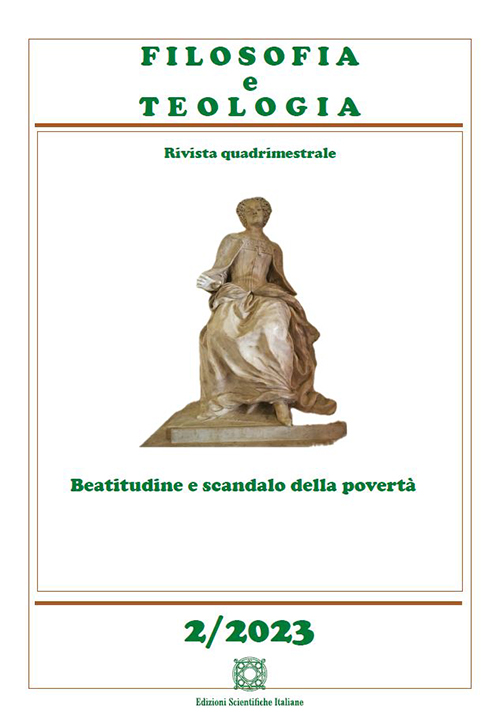Filosofia e Teologia XXXVII, 2 (2023), Beatitudine e scandalo della povertà, pp. 303-319
Il pensiero filosofico di Benjamin Fondane (1898-1944) si pone con storica precisione al crocevia novecentesco che separa la “questione della Metafisica” dalla riflessione inerente alla libertà: infatti, a partire dalla linea filosofica di Lev Šestov, egli gradualmente dischiude alla possibilità di un pensiero che abbia come primum la libertà, intesa come atto di rifiuto e di negazione e come strumento storico di superamento delle tradizionali categorie della Metafisica (aristotelica, parmenidea, scolastico-medievale, cartesiana, leibniziana e husserliana).
Nel seguente articolo, il cui intento è appunto quello di rendere noto, attraverso una esposizione del pensiero racchiuso entro quattro saggi e una contestualizzazione storico-teoretica dell’autore, in che modo Fondane arrivi a tale conclusione, verrà mostrato: 1. il nucleo filosofico che anima il pensiero fondaniano (La non-domanda e l’essere del Nulla); 2. in che modo l’autore approdi a tale nucleo mediante la discussione e il confronto con differenti pensatori (Al crocevia di ragione ed esistenza, Il positivo del negativo e Lo staglio della libertà: Fondane e Pareyson); 3. quale alternativa potrebbe infine essere problematicamente pensata di fronte alla nietzscheana “morte di Dio” (Quale metafisica?).
Parole chiave: Benjamin Fondane, metafisica
The philosophical thought of Benjamin Fondane (1898-1944) stands with historical precision at the twentieth-century crossroads that separates the “question of Metaphysics” from the reflection inherent in freedom: in fact, starting from the philosophical line of Lev Šestov, he gradually discloses the possibility of a thought that has freedom as its primum, understood as an act of refusal and negation and as a historical instrument of overcoming the traditional categories of Metaphysics (Aristotelian, Parmenidean, Scholastic-Medieval, Cartesian, Leibnizian and Husserlian).
In the following article, whose intent is precisely to make known, through an exposition of his thought and a historical-theoretical contextualization, how Fondane arrives at such a conclusion, it will be shown: 1. the substantial philosophical core that animates Fondane's thought (The non-question and the Being of Nothingness); 2. how the author arrives at that core through discussion and comparison with different thinkers (At the Crossroads of Reason and Existence, The Positive of the Negative and The Staging of Freedom: Fondane and Pareyson); 3. what alternative might finally be problematically thought of in the face of Nietzsche’s “death of God” (Which Metaphysics?).
Keywords: Benjamin Fondane, metaphysics

